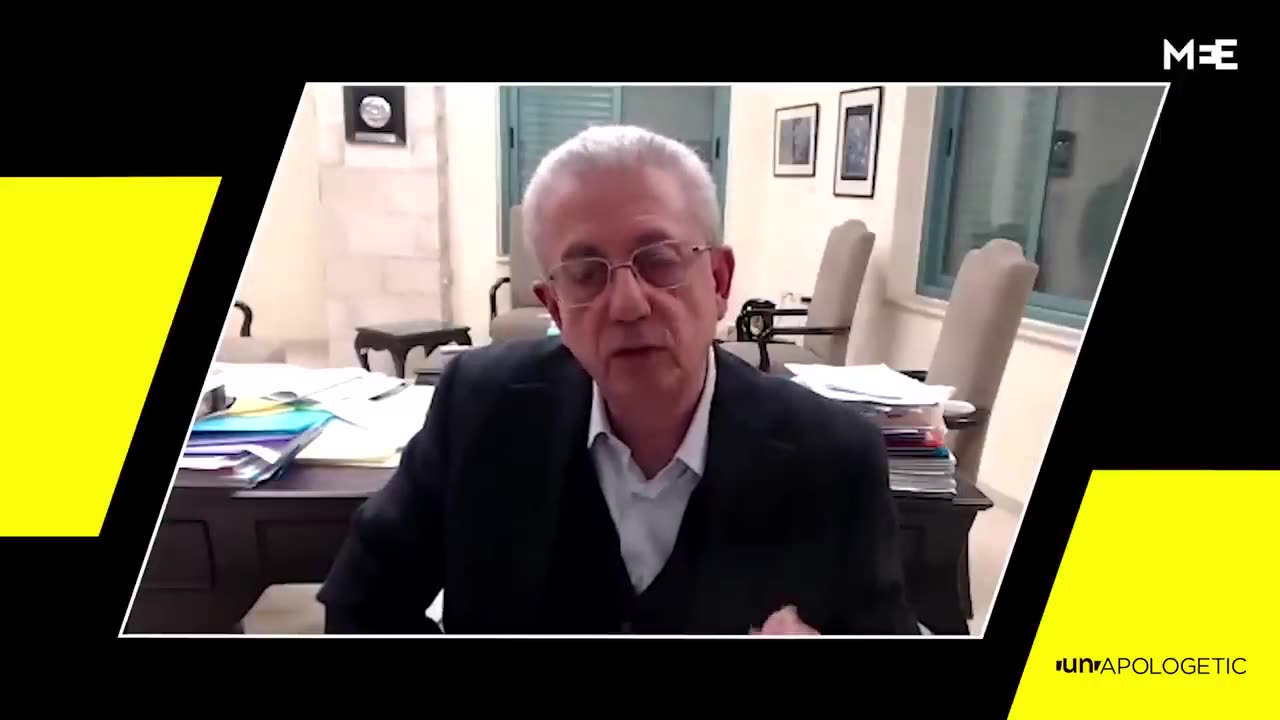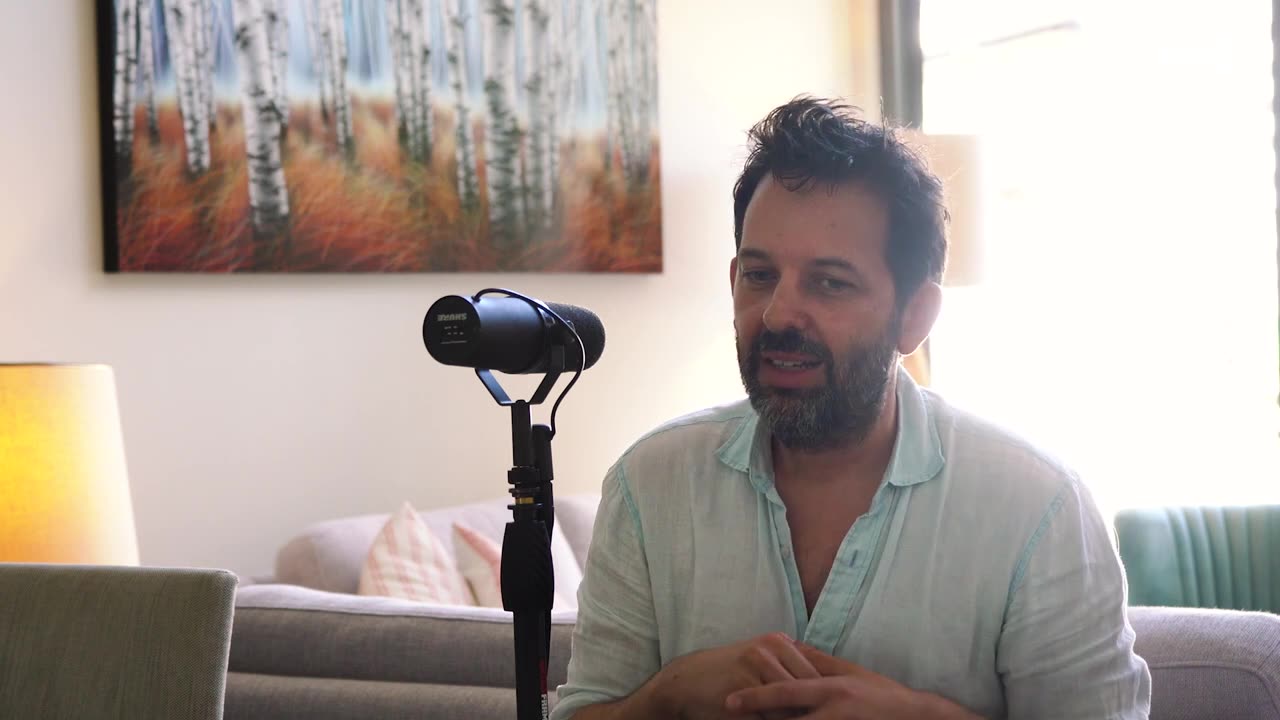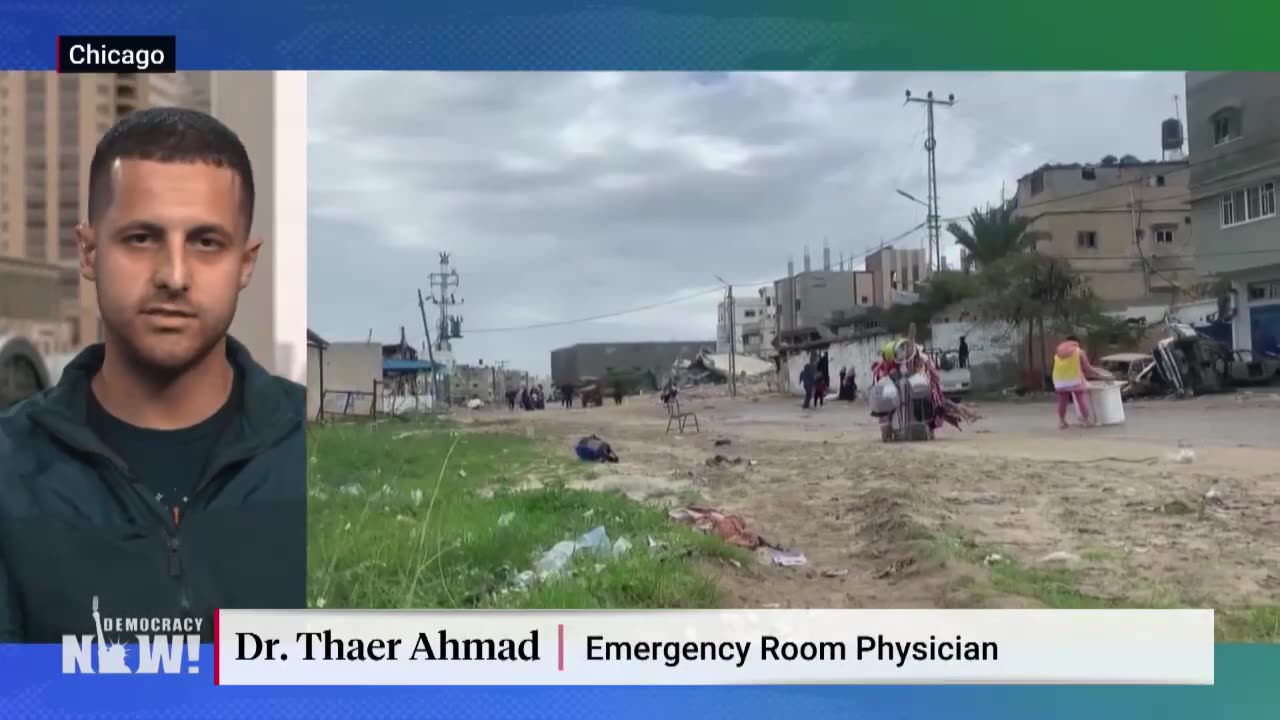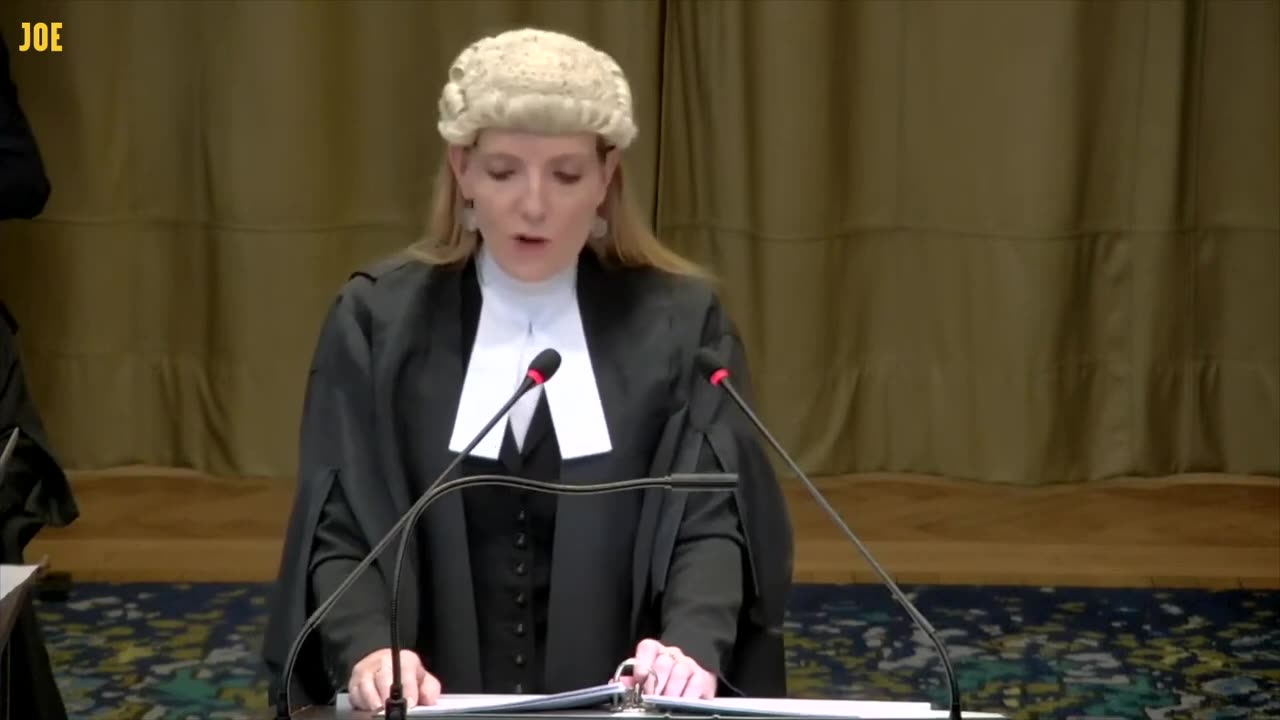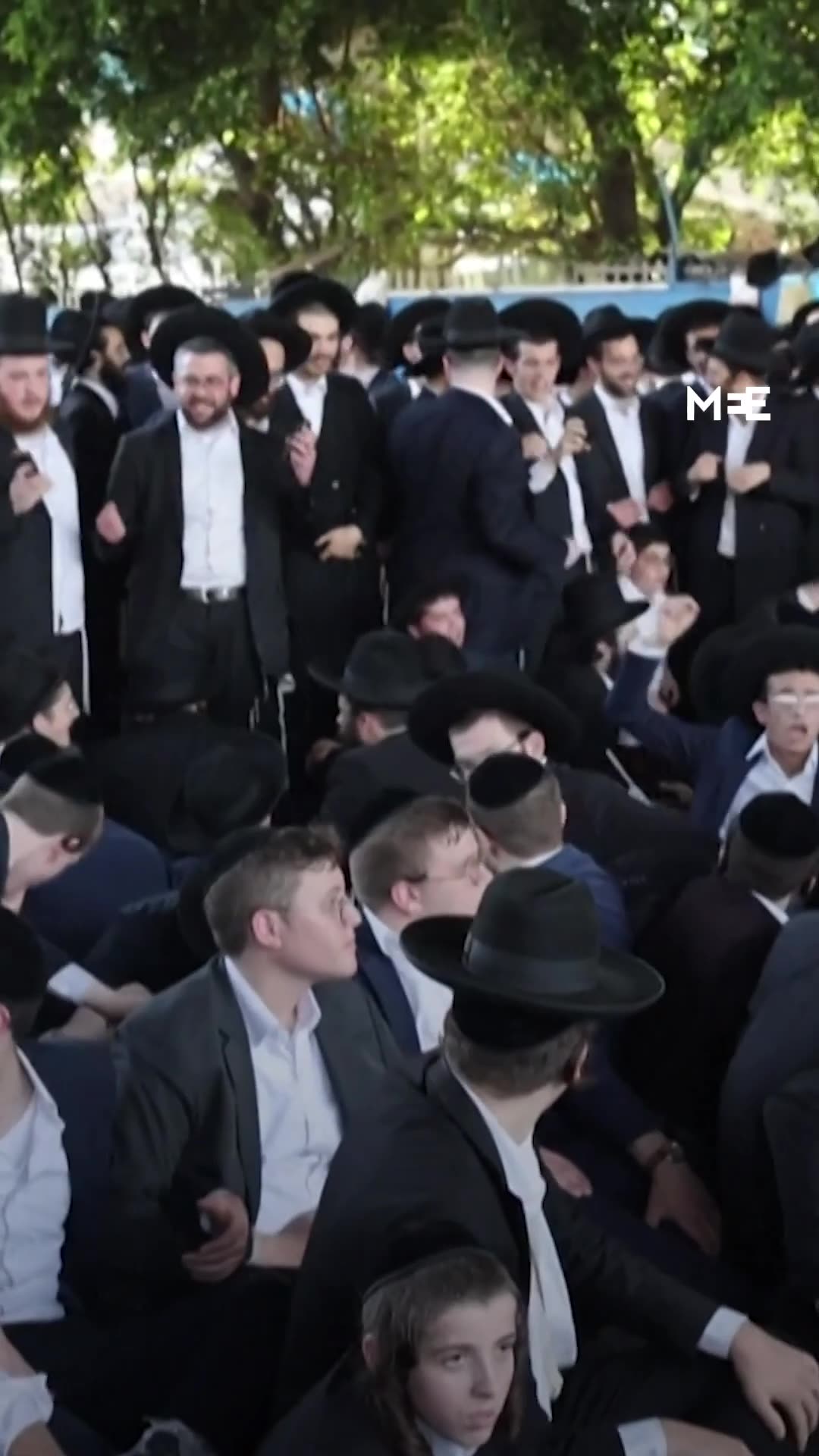Israel’s Orthodox Jews protest against military conscription
expand_moreOrthodox Jews clashed with the police as they blocked a road in the city of Bnei Brack on Thursday in protest against their conscription into the Israeli army.
The protest came more than a week after Israeli lawmakers voted to revive a bill that would increase the conscription of Orthodox Jewish men only gradually, despite objections from the defence minister and criticism it falls short of the army’s needs.
Subscribe to our channel: http://ow.ly/AVlW30n1OWH
Subscribe to MEE Telegram channel to stay up to date: https://t.me/MiddleEastEye_TG
Middle East Eye Website: https://middleeasteye.net
Follow us on TikTok: https://www.tiktok.com/@middleeasteye
Follow us on Instagram: https://instagram.com/MiddleEastEye
Like us on Facebook: https://facebook.com/MiddleEastEye
Follow us on Twitter: https://twitter.com/MiddleEastEye
Over the course of a lengthy discussion, Mustafa Barghouti recollects his life from growing up as a child in Ramallah, which was then controlled by Jordan, to the present Israeli assault on Gaza.
Topics covered include how the 1967 War and subsequent Israeli occupation changed his life and propelled him to become a medical doctor and into political activism, studying medicine abroad. He describes life under occupation and the hopes that the First Intifada brought, the failed Oslo peace process and his role in those negotiations, how he was shot in 1996 by Israeli security forces, the decades-long brutality of the Israeli army, the Second Intifada, the death of Yasser Arafat, Palestinian elections in 2006 and the civil war, the siege of Gaza. He talks about the 7 October, how the media perceives the current assault by Israel on Gaza, and the future of Palestinian liberation.
Filmed on 22nd February 2024
Topic breakdown
00:00 - Intro
00:37 - Growing up in Ramallah
02:44 - Impact of the 1967 War and occupation
05:55 - How occupation changed regular life
07:17 - How long did you think the occupation will last
08:54 - Why did you study Medicine in Russia
10:54 - Student life abroad
13:25 - Life after returning home
15:00 - The occupation tightening it's grip on Palestinians
17:24 - Contributions as a medical doctor
18:55 - Palestinian resistance before the 1987 uprising
21:38 - The first uprising and hope
23:37 - Circumstances around the Oslo peace process
26:35 - Israel's policy of breaking bones
28:30 - The Oslo accords
33:00 - How Oslo was doomed to fail
34:31 - Netanyahu come to power in 1996
37:10 - thoughts on the 2nd uprising
39:20 - Reflections on Yasser Arafat
41:39 - 2006 election and civil war and siege
45:27 - The situation on October 6th
49:02 - October 7th and crisis in Gaza
55:13 - Response to Israel's genocide and US position
59:45 - appearing in the media
1:11:00 - Media bias and racism
1:14:30 - Israel's intentions in Gaza
1:18:30 - Inadequate world reaction
1:22:15 - the way forward for Palestinians
1:24:00 - hopes for the year 2050
Subscribe to our channel: http://ow.ly/AVlW30n1OWH
Subscribe to MEE Telegram channel to stay up to date: https://t.me/MiddleEastEye_TG
Middle East Eye Website: https://middleeasteye.net
Follow us on TikTok:
/ middleeasteye
Follow us on Instagram:
/ middleeasteye
Like us on Facebook:
/ middleeasteye
Follow us on Twitter:
/ middleeasteye
In this episode of The Big Picture Podcast, we sit down with investigative journalist Antony Loewenstein to talk about how for decades, Israel used its occupation of Palestinians as a testing ground for new weaponry, which it then packages and sells to governments around the world.
In fact, Loewenstein argues that since its inception, Israel built its economy around military and surveillance technology, exporting it to some of the world’s most repressive regimes including Myanmar, Pinochet’s Chile and apartheid South Africa.
As the devastating war in Gaza wages on, Israeli defence contractors have already begun advertising drones, hightech firearms and robot dogs battle-tested in the field and ready to be sent abroad.
#TheBigPicture is produced and presented by Mohamed Hassan. It’s a weekly show about the big ideas that shape our past, present and future.
Subscribe and listen to The Big Picture on all podcast platforms: https://thebigpicture.buzzsprout.com/
Timeline:
00:00 - Intro
2:09 - How Israel became a weapons research hub for the West
7:04 - How Israel armed oppressive regimes
9:31 - Israel’s relationship with partheid South Africa
12:15 - The Palestine Laboratory: Testing weapons on occupied subjects
15:52 - Battle testing new weapons in Gaza since 7 October
19:14 - Top Gun & Hollywood military propaganda
22:45 - Gaza news footage used to sell Israeli arms
30:57 - Surveillance technology in hot demand
35:22 - Israel as the ‘border of Europe’
41:46 - The farright’s obsession with Israel
49:48 - India’s Hindu nationalism modelled on Zionism
55:00 - What has changed since 7 October
1:03:59 - Outro
Middle East Eye Website: https://middleeasteye.net
Follow us on TikTok: https://www.tiktok.com/@middleeasteye
Follow us on Instagram: https://instagram.com/MiddleEastEye
Like us on Facebook: https://facebook.com/MiddleEastEye
Follow us on Twitter: https://twitter.com/MiddleEastEye
As Israeli forces raid Nasser Hospital in Gaza, trapping hundreds of patients there and arresting medical staff, we speak with emergency room physician Dr. Thaer Ahmad, who just recently returned to the United States after three weeks volunteering at the hospital. “We’re just asking that hospitals not be targeted, that they not be bombed, and that doctors and nurses can provide for their patients without being worried that they may be killed, that they may be abducted or arrested,” says Ahmad. “We need a ceasefire now. Hospitals need to be protected and functioning.” He also criticizes the American Medical Association for speaking out against Russian attacks on hospitals in Ukraine but staying silent on much more widespread attacks on medical facilities and personnel in Gaza.
Transcript: https://www.democracynow.org/2024/2/1...
Democracy Now! is an independent global news hour that airs on over 1,500 TV and radio stations Monday through Friday. Watch our livestream at democracynow.org Mondays to Fridays 8-9 a.m. ET.
Subscribe to our Daily Email Digest: https://democracynow.org/subscribe
Blinne Ní Ghrálaigh stood in front of the International Court of Justice as part of South Africa's legal team taking action against Israel for it's conduct against Gaza.
Orthodox Jews clashed with the police as they blocked a road in the city of Bnei Brack on Thursday in protest against their conscription into the Israeli army.
The protest came more than a week after Israeli lawmakers voted to revive a bill that would increase the conscription of Orthodox Jewish men only gradually, despite objections from the defence minister and criticism it falls short of the army’s needs.
Subscribe to our channel: http://ow.ly/AVlW30n1OWH
Subscribe to MEE Telegram channel to stay up to date: https://t.me/MiddleEastEye_TG
Middle East Eye Website: https://middleeasteye.net
Follow us on TikTok: https://www.tiktok.com/@middleeasteye
Follow us on Instagram: https://instagram.com/MiddleEastEye
Like us on Facebook: https://facebook.com/MiddleEastEye
Follow us on Twitter: https://twitter.com/MiddleEastEye
